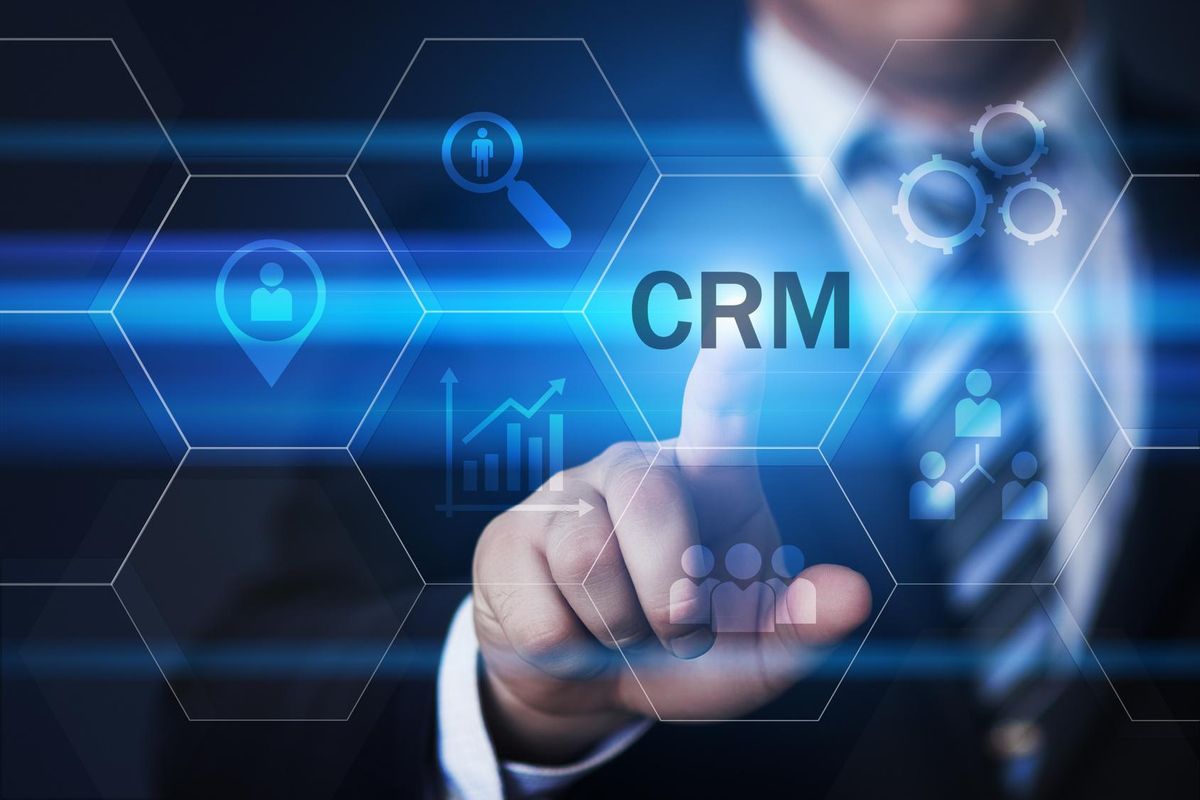
The Benefits of Using a CRM System in Your Business: It's Not as Hard as You Think!
A customer relationship management system (CRM) can be one of your most powerful business management tools. Imagine having all of your customer data, files, contact information, history, and preferences at the press of a button.
Sounds simple enough, but amazing right? Almost like a no-brainer? Why then, do so many small-to-medium sized businesses drag their feet and hesitate when it comes to using a CRM?
Chances are if you fall in this category, you already have an ad hoc CRM procedure in place. Maybe you use spreadsheets, a Google calendar and contacts database, or even file folders and good ol’ fashioned paper. (Hey, I recently saw a Rolodex on a CEO’s desk—it DEFINITELY still happens.)
You’re driving your employees crazy tracking all these bits of data; customers are falling through the cracks. If you asked someone on the sales team when they last made contact with Customer X, or if Customer Y opened the last newsletter, they would get a very panicked look on their face.
They would then hustle off to dig through their data, thumb through the Rolodex, do a quick search on their Gmail, and try to find you a sufficient answer (or make one up). If you don’t have a CRM, your customers are probably getting lost.
So many small-to-medium sized companies are drowning in their own data, and losing customers because of it, and yet they still refuse to embrace a CRM. Why? Let’s face it CRMs can be a little scary.
Are CRMs Overwhelming?
CRMs can seem costly and daunting. If you’ve listened to a few pitches from “Big business CRMs,” you probably thought the confusing overkill of bells and whistles was much more than your small business needs or can afford.
Next there’s the cost factor, training, set up, and of course concerns about getting all of the old data off paper, out of your spreadsheets, and into your CRM database.
Then there's having to deal with change. Change is scary. Taking on a big change in the way you manage your most precious commodity—your customers—can seem terrifying, not to mention there's a high probability of having resistance from your staff. Each of your employees probably has their own system and method for tracking data, and chances are, they’re happy with it for the most part (until they lose a customer).
What happens, though, when an employee leaves your company? Does he tuck his Rolodex in a shoe box, pack it up, and take contacts, data and institutional knowledge with him?
Even if it doesn’t walk out the door, is the information in a format you can easily access and navigate? Will Maryann’s spreadsheets make sense or does she have her own unique filing system color coded by a key no one else can figure out?
Make sure you don’t lose your institutional knowledge due to turnover or simple disorganization. If you’re growing, hope to be growing, or even moving steadily forward, you can’t afford to lose track of customers or make missteps with your data.
Life happens. One employee can’t hold the key to all your customer data.
Managing Relationships
At the very heart of the definition, CRM is simply that—Customer Relationship Management. It manages your most important relationships, and allows you to get to know your customers easily and clearly. You can group your customers into categories, run easy reports to analyze interactions and similarities, integrate with your calendar and business apps, and stay connected and in contact.
Your CRM should be affordable enough for small businesses. It’s a tool to help bring in revenue (not take away from it). You need one flexible enough to grow with your company for a long time, without requiring you to pay for features you don’t need or want.
Accessibility of CRM
The wonderful thing about a cloud-based CRM program is access, anywhere at any time. If you’re obsessing over your last interaction with a customer at 10 p.m. on a Saturday from home, you need to learn to relax--but you don’t need to worry. A good CRM will deliver that information faster than the pizza guy can make it to your house. No more rushing back to the office because you forgot some critical note in a folder somewhere. It’s all at your fingertips.
A small-to-medium-sized business-friendly CRM will have a simple interface; your employees shouldn’t feel like they have to learn a whole new language just to put in their data. After all, what small business has time to spare on extensive training and programming?
If you’ve been scared to take the plunge, chances are you haven’t found the right program for your needs. There are a wide range of options to choose from, but the best are easy to use, affordable, and simple to set up with support you can access. Look at your needs and ask yourself a few questions about your demographics to narrow down your choices: How many employees will be using your CRM? What other systems do you use? What are your goals for using your CRM?
Investing a little time and research on the front end can help you find a CRM and set it up properly, but the process is probably a lot less daunting than you think. The real question isn’t if you can afford the time and manpower to set up a CRM, but whether you can afford not to.
As we move more and more toward mobile-friendly interactions with customers and constant accessibility, customers have come to expect a certain level of service. If you can’t meet their needs or forget what their needs are, you risk losing their business to a competitor.
Don’t let your customers fall by the wayside. If you haven’t started using a CRM, now is the time to move forward. It will be easier than you think!



